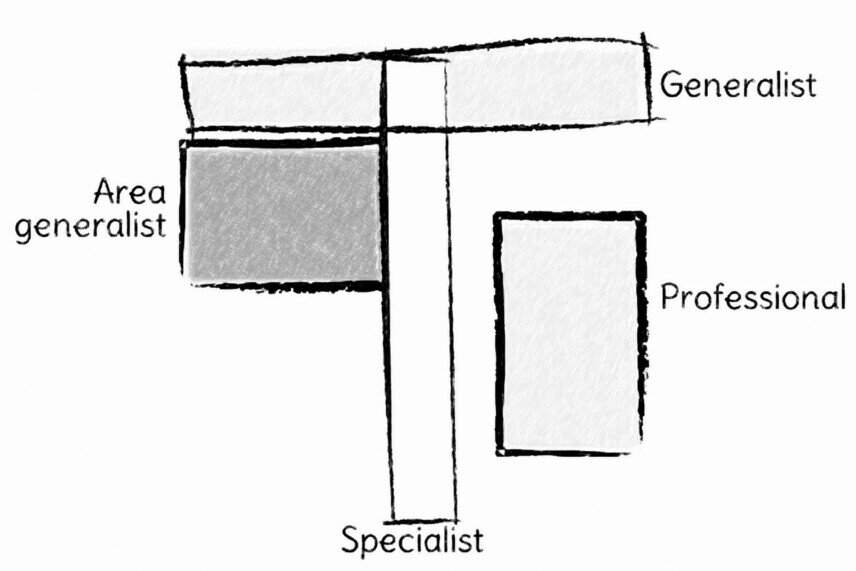T-model of capabilities
Skill management often suffers from the fact that skills are intangible. The existing competence is not finally identifiable. For this reason, expectations grow into unrealistic areas – knows everything, everywhere, can solve particular problems etc. These unrealistic expectations generate frustration and de-motivation.
The T-model of skills assumes that people generally have the same potentials. Capabilities are used in different areas, but the potential amount of gifts is comparable – not to say, limited by the 1.5 kg.
The T-Model of skills is a thinking model and made up of generalists and specialists

The model's actual benefit is the intuitive understanding that it has to be decided strategically whether the personal knowledge will be developed horizontally or vertically. The generalist and specialist will be described below and additionally, examples like area generalist and professional:
- Generalist
This qualification represents skills that target maximum breadth, i.e., to cover as many skill areas as possible. The breadth has to be paid with a lack of depth, i.e., it cannot be accumulated detailed competencies in various knowledge areas. Generalists are mainly useful in leadership, coordination, and communication tasks.
- Specialist
In this case, it represents a slim skill distribution, i.e., to cover detailed skills in a particular area. The slimness is paid by lack of breadth, i.e., skills in neighboring and additional areas are only assembled if it serves the specialization. All other aspects are not further detailed. Specialists are mainly found in operations, e.g., development, production, sales, and maintenance.
- Area generalist
This type represents a qualification that goes for maximum richness in one area of expertise, i.e., to cover as many aspects of this area as possible. The limited scope allows for a certain depth. Area generalists can be found in operational leadership that often requires taking over some tasks.
- Professional
The slimmest type, the professional, is the day-to-day competency in office work. Its focus on a specific topic offers flexible deployment in different tasks. These are mainly administrative and operative tasks in the various functional areas. In exceptional cases, support comes from specialists.
Further examples can be developed, as long as the surface of the skill area remains the same.

